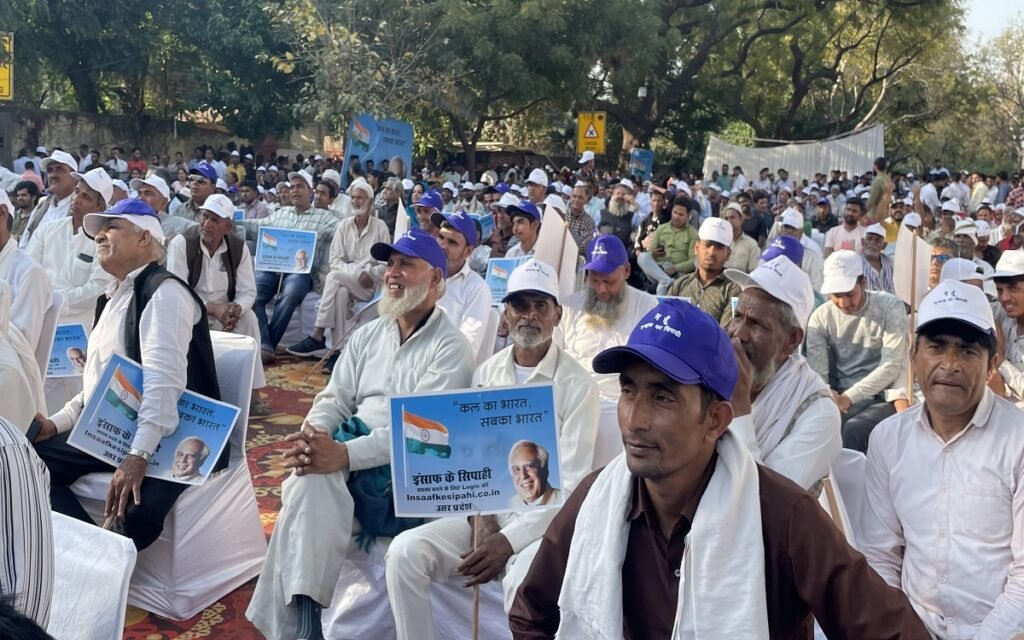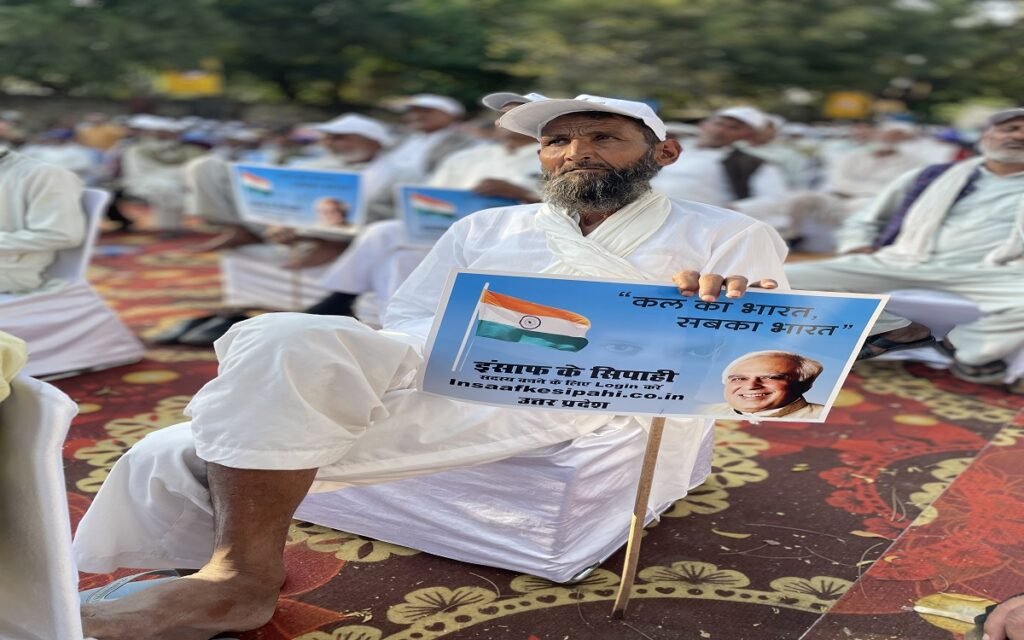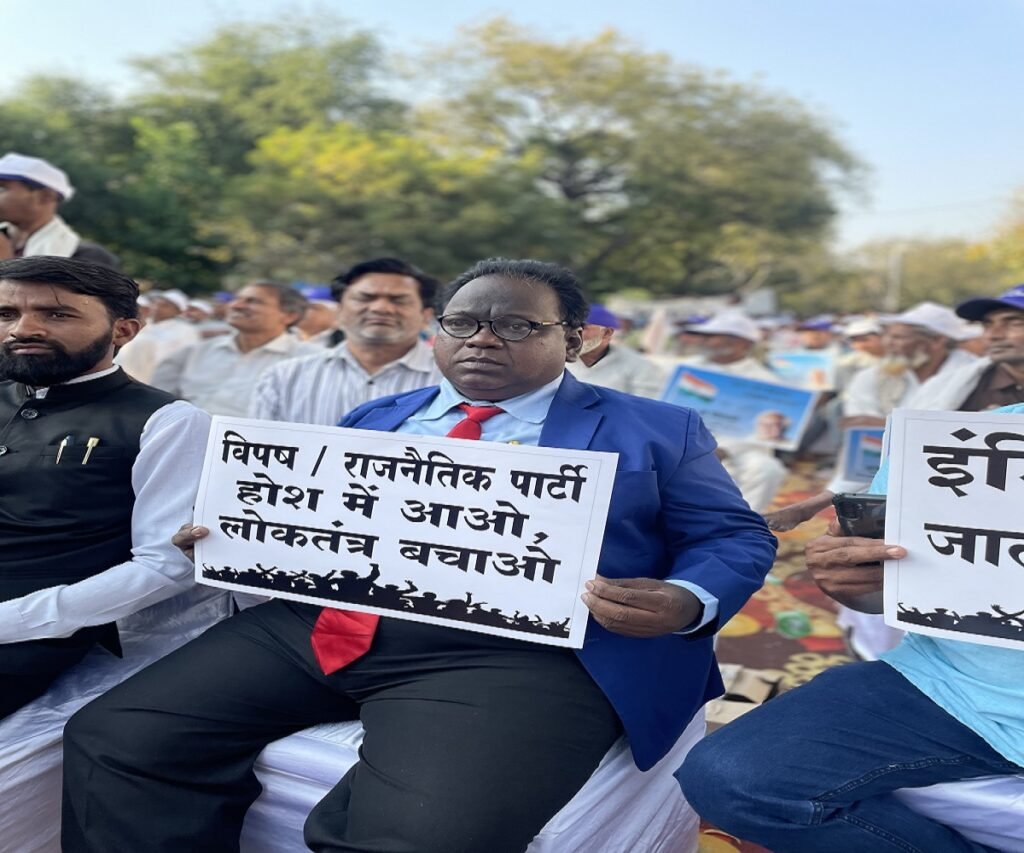Insaf ke Sipahi, a non-electoral platform, is dedicated towards building a network of individuals from across the country who are wedded to the cause of justice.
Ghazala Ahmad | Clarion India
NEW DELHI — There is a growing need to add more teeth to the country’s education infrastructure to enable it to put additional focus on building its human intellectual property, senior advocate and Rajya Sabha member Kapil Sibal has stressed.
Sibal, who is also a former Congress minister, was speaking at a public meeting called by him to formally launch his initiative, Insaf ke Sipahi.
This non-electoral platform, launched at Jantar Mantar here on Saturday evening, is dedicated towards building a network of individuals from across the country who are wedded to the cause of justice.
Sibal stressed on providing the young generation with quality education and necessary skills to make them better and productive citizens of the country. “It should be a national mission”, he said.

The former Congress leader also talked about various pressing issues plaguing the country including governance, corruption, institutional bias and political persecution and assured that through his newly launched initiative, he and his team will not only try to address them but also collectively fight against injustice and inequality.
Targeting the BJP-led government at the Centre on its sustained and systematic efforts to muzzle dissent, he said: “Nations are built inside universities, but what they have done to these educational spaces, planting ABVP in the colleges and universities in the name of institutional opposition is nothing but choking the space of dissent”.
Students, he said, are the wealth of the nation. We need to empower them. Investing in their future means investing in the future of India”, he said.
Championing the cause of the poor and the downtrodden, he said the poor in India are living on the margins. “We must empower them so they can become productive members of society.

Castigating the government on price rise and increasing unemployment in the country, he said, “The poor are hit the hardest by rising prices of essential commodities”.
The former union minister also recommended reforms in the judicial system of the country. “India should have four different courts of final appeal in different parts of the country covering each section and region, while Supreme Court should only function on the cases related to the Constitution, a system similar to the American Judicial system”, he said.
“People from far away states, say Kerala or Andhra Pradesh, have to travel to Delhi for merely filing a petition in the Supreme Court. They also have to incur heavy expenses on travel. India should be divided into four regions and each one of them should have a final court of appeal to decide on matters coming out of high courts. Supreme Court should only focus on cases dealing with the Constitution with only 13 judges”, he suggested.
“The goal of this platform is to have a new vision for India”, he said.
Hundreds of lawyers and concerned citizens took part in the gathering. Their common refrain was to believe in the law of land and that justice will prevail only when constitution is followed in letter and spirit.

Dr. Suresh Gawai, a lookalike of Bhimrao Ambedkar, held a placard saying: ‘Hosh me aao, Loktantra Bachao’ (Hold on to your senses, save democracy). Sitting in the first row of the gathering was a doctorate in law. “I am a believer of the constitution and the law, only that can save this nation”, he said.
“I am here not only to support ‘Insaf ke sipahi’ initiative, but to root for everything that speaks of justice and equality”, he said.
“If such an initiative is untended to safeguard this nation from corruption, inequality and institutional bias, we are together”, he added.
Sibal was joined on the stage by Vivek Krishna Tankha, senior Supreme Court advocate and a Member of Parliament.
______________
Cover photo: Kapil Sibal, former Congress minister, speaking at a public meeting called by him to formally launch his initiative, Insaf ke Sipahi at Jantar Mantar in New Delhi. — Photos by Ghazala Ahmad/Clarion India

